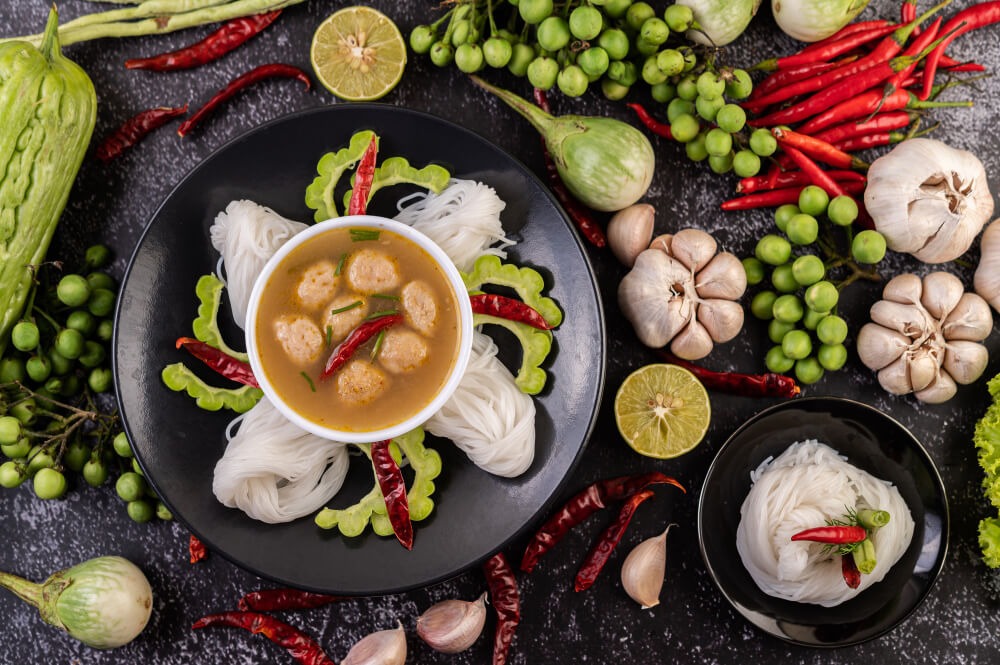Thailand's Thriving Food and Beverage Retail Market: Key Players, Trends, and Future Growth

According to Statista, Thailand's retail sector plays a crucial role in the economy, with the food and beverage (F&B) segment being particularly significant and expected to expand by 5.08% between 2024 and 2029, resulting in a market volume of USD 91.87 billion in 2029. The F&B retail landscape in Thailand is diverse, comprising traditional markets, modern trade channels, and a rapidly expanding e-commerce presence. The sector has shown resilience and adaptability, particularly in navigating challenges like the COVID-19 pandemic.
A notable development is the launch of Phenix by Asset World Corporation (AWC), a leading developer and hospitality company in Thailand. Phenix is a groundbreaking wholesale and retail F&B mall envisioned as the world's first comprehensive food ecosystem. This innovative hub is designed to connect food manufacturers with businesses and consumers, seamlessly blending online and offline experiences. Phenix is expected to attract global chefs, restaurateurs, hoteliers, and culinary entrepreneurs, offering them a one-stop solution for sourcing ingredients.
Figure 1: Awc Wholesale and Retail Food Hub
Source: Bangkok Post
Key players dominate Thailand's F&B retail market, including significant grocery brands like Tesco Lotus, Big C, and Makro, alongside convenience store giants 7-Eleven and Family Mart. These retail chains offer an extensive range of products, from fresh produce to packaged goods, catering to diverse consumer needs. In 2024 alone, 7-Eleven plans to open 700 new branches with a USD 373.09 million (THB 13 billion) investment, Big C is set to launch 200 Mini branches, and Lotus aims to add 100 Go Fresh outlets. Despite challenges like intense competition and the need for digital marketing strategies, the retail industry is projected to grow by 5 to 5.5% between 2024 and 2026, according to Global Data..
Thai consumers strongly prefer fresh and high-quality foods, often purchasing fresh produce, meat, and seafood from traditional wet markets. However, modern trade channels are gaining popularity due to their convenience, hygiene standards, and variety.
The COVID-19 pandemic accelerated the adoption of e-commerce, with platforms like Lazada, Shopee, and JD Central seeing a surge in demand for F&B products. Companies like HappyFresh and LINE MAN have capitalized on this trend, offering same-day delivery of groceries, including fresh produce and other essentials. The trend towards home delivery services and contactless payments also reflects changes in consumer behavior, further influencing the retail landscape.
With a growing focus on health, there is increasing demand for organic and health-oriented products. This shift is driving retailers to expand their offerings. For instance, Tesco Lotus has introduced a dedicated organic section to cater to the rising demand for health-conscious food choices. Retailers like Villa Market and Tops Supermarket have also expanded their organic product lines, offering everything from organic vegetables to gluten-free snacks. Villa Market, in particular, has positioned itself as a leader in health-oriented products by collaborating with local organic farms to ensure a steady supply of fresh, organic produce.
More notably, private labels have recently gained traction in Thailand's F&B sector, with retailers like Tesco Lotus, Big C, and 7-Eleven offering high-quality products at competitive prices. These private labels allow retailers to differentiate themselves, build brand loyalty, and achieve better profit margins.
By investing in private labels, these retailers can differentiate themselves in a crowded market, offering unique value propositions beyond just price. This strategy helps them build strong brand loyalty among consumers, who increasingly associate these private labels with quality and reliability. Moreover, private labels allow retailers to achieve better profit margins by controlling the entire supply chain, from production to shelf placement. This control reduces costs and enables faster response to market trends and consumer demands, further strengthening their competitive edge in Thailand's dynamic F&B market.
Although Thailand's economy is showing signs of recovery, with inflation slowing down and increased wages, consumers are still cautious in shopping and paying more attention to private-label products. Besides competitive pricing, Thai shoppers seek nutritional value in products, especially health benefits. In other words, the market demands affordable products that don't compromise quality and health benefits.
With a population of over 71 million people and a market size of USD 32.85 billion according to Mordor Intelligence, Thailand's F&B retail market has a promising future, driven by e-commerce growth, health and wellness trends, and sustainability. Retailers must continue to adapt to evolving consumer demands and invest in technology to stay competitive in this dynamic environment. Most importantly, opportunity lies within affordable private-label products that include health and nutritional attributes while simultaneously balancing the price to cost ratio.
